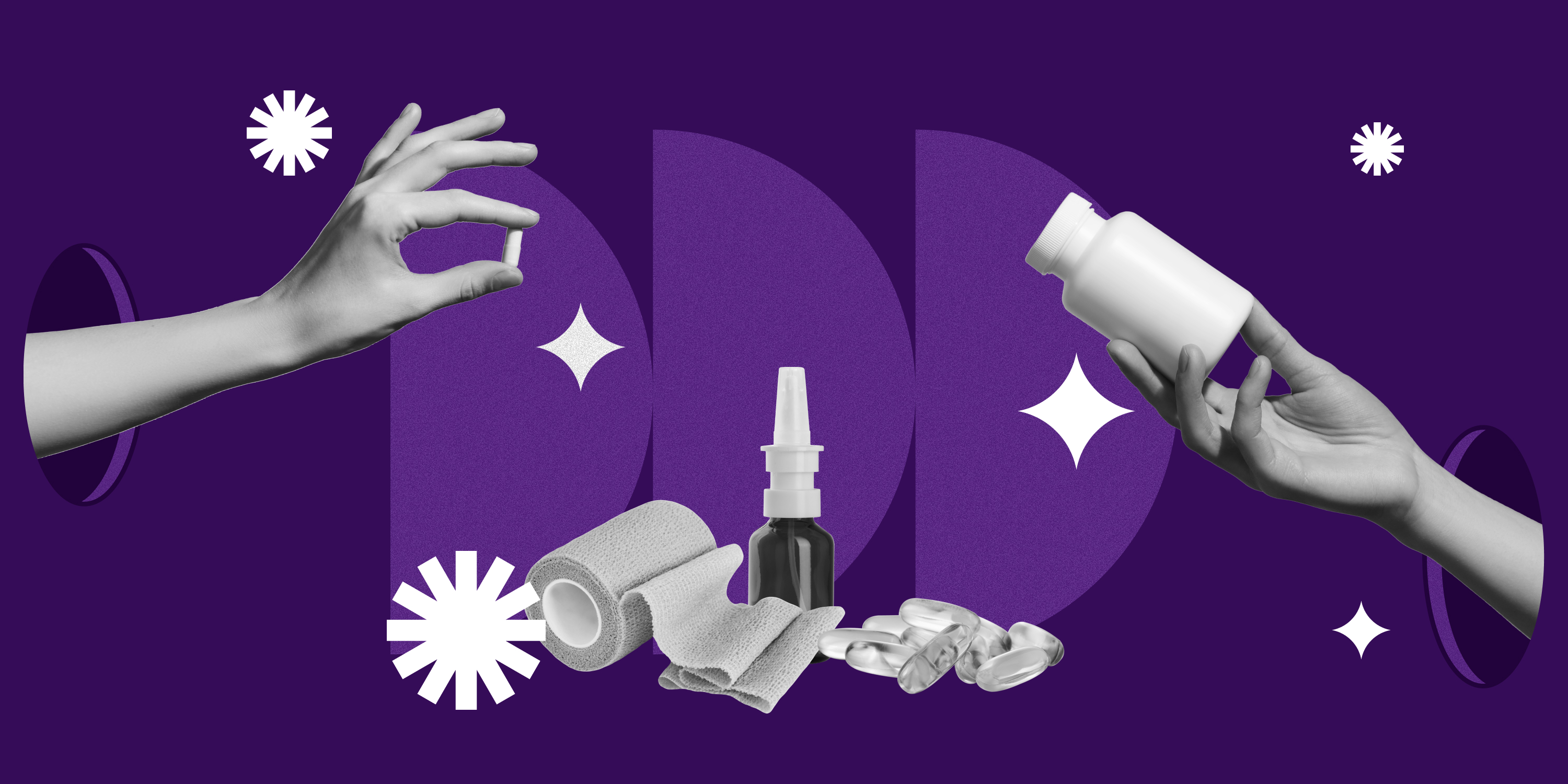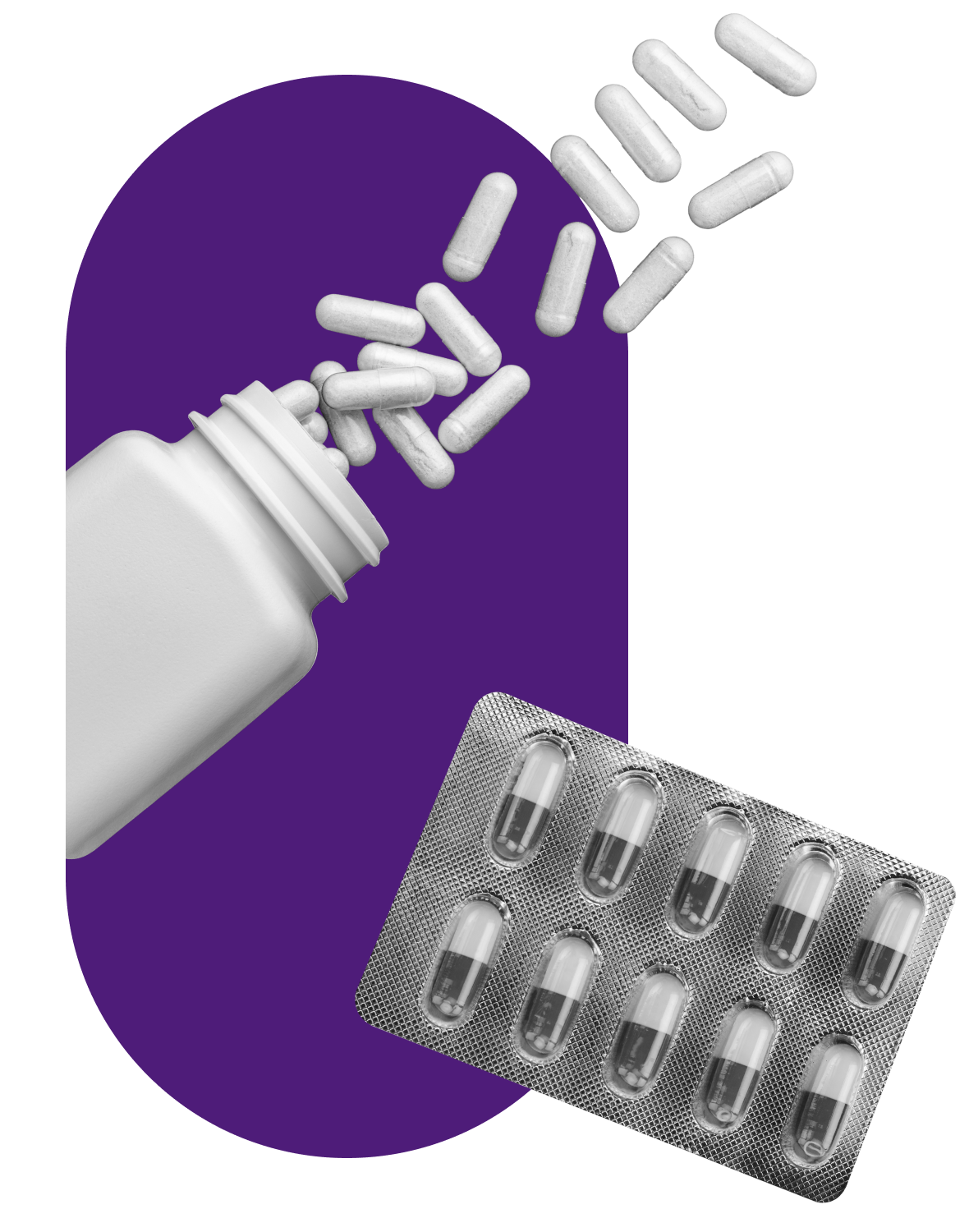
THE 2023 CPG CUSTOMER JOURNEY
OTC Health
CONTENTS
Search is Key to In-Store OTC Health Research
Fully 90% of over-the-counter (OTC) health product shoppers search for these purchases online, with Amazon and Walmart neck-and-neck for the most popular starting point for such searches at 30% of respondents each. While 54% of shoppers recall purchasing OTC health products at physical drugstore locations, just 7% chose drugstores as the website/app they’re most likely to start an OTC health product search on.

GENERATIONAL INSIGHTS
Across different age groups, Amazon was the top pick for baby boomers by a narrow margin, while Gen Z through Gen X members were more likely to start their OTC health product search with Walmart. Target was also more popular with younger generations with 14% of Gen Z making it their first stop, compared to just 4% among boomers.
Only 8% of respondents said that a traditional search engine like Google or Bing was the place they’d start an online search for OTC health products. However, 45% said they’d used a search engine while in-store to learn more about OTC health products, highlighting how important traditional search engines can be to the path to purchase even if they’re not often the starting place for online searches in some categories.
Age Matters When It Comes to OTC Health Product Discovery
OTC health shoppers were most likely to recall discovering products they later went on to purchase via television, followed by social media. Meta-owned properties Facebook and Instagram were the two most influential social platforms in this regard, with more than one third of all respondents selecting one of these two platforms as the social network they most often discover new OTC health products on. TikTok was the third most influential social platform with 8% selecting it.
GENERATIONAL INSIGHTS
While 63% of baby boomers said that they did not discover health products on social media, just 25% of adult Gen Z members said the same. Among respondents that do use social for discovery, Facebook was the most common choice for boomers at 64%. For Gen Z, only 16% choose Facebook as their top pick, compared to 36% who chose TikTok and 20% who picked Instagram.
Scanning for Influence: Brands or Personalities?
Influencers play a meaningful part in the impact of social media, as 59% of respondents said they had purchased an OTC health product based on the recommendation of an online influencer in the last year. With just 26% of respondents saying they follow OTC health brands on social media, influencers can be more likely to reach most social users than brand accounts. 15% of respondents said they purchased influencer-promoted OTC health products frequently or very frequently, and finding the right influencers to partner with to reach these shoppers can meaningfully move the needle for brands.
GENERATIONAL INSIGHTS
Younger consumers were more likely to say that they had bought health products based on the recommendation of an online influencer with 78% of adult Gen Z members saying they had done so in the past year, compared to 42% of baby boomers. Just under 26% of Gen Z respondents said that they had bought influencer recommended health products frequently or very frequently, while only 5% of boomers said the same.

Streaming Has Plenty of Runway to Grow Influence as New Ads Come Online
Television continues to be much more commonly consumed than streaming video services, with only 4% of respondents saying they never watch television compared to 13% who say the same of streaming video services. As such, it’s no surprise that respondents were far more likely to recall discovering an OTC health product that they later went on to purchase in the last year via television (34%) than via streaming services (11%). Moving forward, these shares should converge as cord-cutting continues and historically subscription-only streaming platforms like Netflix roll out ad-supported tiers.
GENERATIONAL INSIGHTS
Compared to baby boomers, members of Gen Z were more likely to recall hearing about new health products that they later went on to purchase on eight of the 11 media sources assessed in this report – the exceptions being traditional TV, print newspapers and magazines, and in-store displays. The biggest gap between Gen Z and baby boomer product recall was from social media, followed by online marketplaces, then podcasts.
Consumers Want Relevant Ads, Especially Younger Generations
When asked what kind of OTC health ads they prefer to see online, only 37% of respondents prefer ads built to appeal to the most people, as most respondents want offers that are catered to them or groups who share similarities with them. 23% prefer offers personalized to them based on past actions they’ve taken. 22% preferred offers crafted to appeal to people who share their general interests, and 18% want offers to be focused on what appeals to others who share similar demographics.
GENERATIONAL INSIGHTS
Younger respondents were less likely to favor ad offers meant to appeal to the most people with only 29% of Gen Z and 33% of millennials choosing that option, compared to 39% for Gen X and 41% for baby boomers. Another 29% of Gen Z favored offers based on interests, while 26% favored offers personalized based on past actions they had taken.
OTC Health Shoppers Don’t Mind Ads on Retail Sites
When it comes to purchasing OTC health products online, Walmart held a slight lead on Amazon, 33% to 30%, in terms of which website or app consumers were most likely to use. Drugstore websites came in a distant third at 9%.
Several components of product detail pages garnered significant votes as helpful for consumers trying to decide whether or not to make an OTC health product purchase online. The most selected choice was written reviews, followed closely by comparisons to similar products and ingredient/nutritional information.

When asked about their perception of sponsored ad listings on sites like Amazon and Walmart, 42% of respondents either didn’t have a strong opinion about them or had never noticed the listings. Combined with the 26% of respondents who find these listings helpful for revealing products that they might otherwise not know about and the 11% who say these listings are typically the products that are most relevant to them, the vast majority of OTC health shoppers have perceptions of retail media listings ranging from neutral to positive.
Consumers Plan to Shy Away from Pandemic-Boosted Channels
Just 10% of respondents said they don’t make OTC health purchases online. However, 26% expect to purchase fewer OTC health products online in the year ahead relative to the previous year, compared to just 11% of respondents saying they’ll buy fewer OTC health products either online or in a physical store.
Other purchase behaviors that were boosted by the pandemic, such as the use of buy online pick up in store (BOPIS) and delivery services, also saw an outsized number of respondents say they expect to do less of this when it comes to OTC health products in the year ahead. As the health threat posed by COVID-19 and the local restrictions designed to limit the spread of the virus both wane, some consumers are reverting back to pre-pandemic purchase journeys.

GENERATIONAL INSIGHTS
Even for Gen Z members, who were over three times as likely as baby boomers to have used a delivery service in the past month for health products, a larger share say they will use delivery less over the next year rather than more. In fact, all generations were more likely to say they will reduce their reliance on both delivery and BOPIS for health products over the next year, rather than increase their use.
Inflation is Weighing on OTC Health Customers
Over 40% of consumers turned to cheaper brand options for OTC health products over the past year as inflation lifted prices for US shoppers. 36% said they were shopping around more as a result of inflation, while 33% are searching for more promos and/or coupon codes.
Fully 41% of shoppers said that instant savings on certain products is the most valuable feature of any loyalty program related to OTC health purchases, while 34% said that coupons/reward points that can be redeemed for later purchases are most valuable. Given the heightened promotional sensitivity driven by inflation, businesses may be more able to drive loyalty program sign-ups today than in previous years.